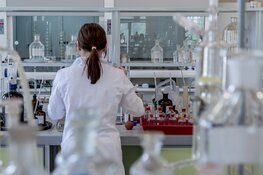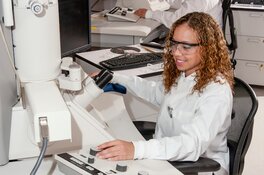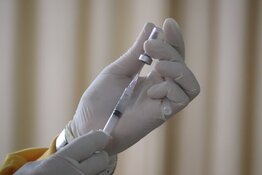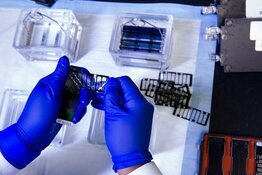Sernova Biotherapeutics Inc. (SVA:TSX.V; SEOVF:OTCQB; PSH:XETRA) entered an agreement with Eledon Pharmaceuticals Inc. (ELDN:NASDAQ) to assess its investigative anti-CD40L antibody tegoprubart as an immunosuppressant in Cohort C of Sernova's ongoing Phase 1/2 clinical trial of its Cell Pouch system in type 1 diabetes patients, reported H.C. Wainwright & Co. Analyst Dr. Joseph Pantginis, in a July 9 research note. Cohort C is slated to start in H2/25.
Tegoprubart showed, in early clinical studies, the potential to prevent transplant rejection in type 1 diabetes patients. This led to better graft survival and function without severe hypoglycemic episodes.
"We believe the addition of tegoprubart to Sernova's Cell Pouch platform should enable patients to achieve insulin independence with significantly less toxicity," Pantginis wrote.
In Cohort C, tegoprubart will replace tacrolimus (calcineurin inhibitor), a common immunosuppressant for organ transplantation. Tacrolimus' potential toxicity toward insulin-producing beta cells makes it a less optimal agent in islet cell therapy.
3,650% Potential Return
H.C. Wainwright reiterated its CA$6 per share target price on Sernova, noted Pantginis. He wrote that the company should become more visible due to its Cell Pouch system and use in multiple indications, beginning with type 1 diabetes.
At the market close on June 8, the biotech was trading at about CA$0.16 per share, and from this price, the return to target is 3,650%.
Sernova remains a Buy. Its market cap is CA$51 million.
Vertex Results Positive for Sernova
Like Sernova, Vertex Pharmaceuticals Inc. (VRTX:NASDAQ) has a program that aims to restore insulin production by replacing damaged beta cells with functional insulin-producing cells. Both programs, noted Pantginis, validate the use of cellular replacement to treat type one diabetes.
At the 2025 annual meeting of the American Diabetes Association (ADA) in June, Vertex presented updated data from the Phase 1/2 portion of its type 1 diabetes program evaluating zimislecel (VX-880), a stem cell-derived, islet cell therapy. The data specifically are for 12 patients with type 1 diabetes and impaired hypoglycemia awareness, who received one full dose of infused zimislecel and were followed for at least one year.
According to H.C. Wainwright, there were four key takeaways from the results. All trial participants experienced durable, glucose-responsive C-peptide production throughout the year and reached ADA recommended glycemic control targets, including an HbA1c of less than 7% for more than 70% of the time. Ten out of 12, or 83%, of patients needed less exogenous insulin. The safety profile was favorable; most of the treatment-related adverse events that occurred were due to the immunosuppression.
"In our opinion, Vertex's results are a strong positive readthrough for Sernova and help derisk the broader field of cell-based therapies in type 1 diabetes," wrote the analyst. "However, Sernova's data remain highly competitive, with a delivery approach that we believe is differentiated through its targeted, implantable Cell Pouch platform." The environment Cell Pouch creates potentially improves long-term islet survival and function.
Sernova Data Show Clear Benefit
Newly announced data from Sernova's Phase 1/2 clinical trial suggest the trial "is on track to succeed and help derisk any upcoming data readouts and subsequent studies," Pantginis wrote. Data are from 12 patients spanning Cohort A, implanted with the 8-channel Cell Pouch, and Cohort B, implanted with the 10-channel Cell Pouch and given optimized and better-tolerated immunosuppression. The purpose of the clinical trial is to evaluate the safety and tolerability of allogeneic islet transplantation into Sernova's prevascularized Cell Pouch in patients with type 1 diabetes, impaired hypoglycemia awareness and a history of severe hypoglycemic episodes.
What investors should know, Pantginis wrote, is that eight out of 12, or 66%, of patients achieved insulin independence thus far, "a critical measure" noted the analyst. Seven of 12, or 58%, of patients had C-peptide levels of 0.3 nanograms per milliliter or greater, indicating successful islet cell engraftment and insulin production by transplanted islets. Nine of 12, or 75%, of patients had an HbA1c level under 7. As for the other three, one's HbA1c dropped 24% to 7.8% from 10.3%. The other two already had a normal HbA1c of less than 7 at baseline and maintained the value. Also of note, data compiled from self-reported survey responses showed patients had better hypoglycemia awareness and quality of life after Cell Pouch implantation.
"In our opinion, the clear clinical benefit in type 1 diabetes patients, particularly insulin dependence, 1) speaks to the potential of the Cell Pouch device, 2) raises the Cell Pouch's strategy's in a competitive environment and 3) continues to crystallize Sernova's stock's possible upside," Pantginis wrote.
Opportunity in Type 1 Diabetes
H.C. Wainwright forecasts that the Cell Pouch system could reach the market in the U.S. in 2027 and gives it a 25% chance of success on sales of US$2.3 billion, reported Pantginis. The financial firm bases these estimated peak sales on a minimal, roughly 2.1%, market penetration in the hypoglycemic unawares population but believes the market is much larger.
In addition to patients, Cell Pouch could benefit the healthcare market overall, noted Pantginis.
"Currently, the data support, at the minimum, a two-year, cell implant impact on insulin independence, which we believe has a significant impact on the broader healthcare costs of type 1 diabetes patients," noted Pantginis.
| Want to be the first to know about interesting Regenerative Medicine and Medical Devices investment ideas? Sign up to receive the FREE Streetwise Reports' newsletter. | Subscribe |






































